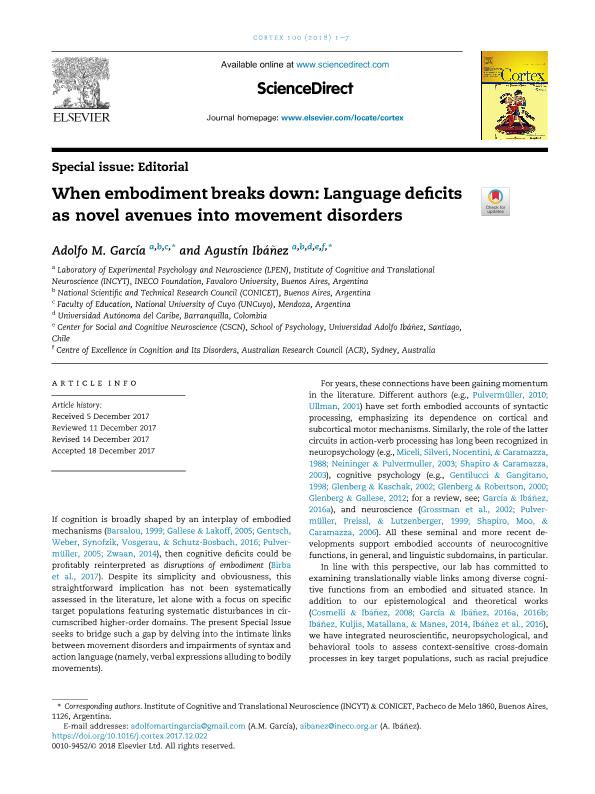Artículo
When embodiment breaks down: Language deficits as novel avenues into movement disorders
Fecha de publicación:
03/2018
Editorial:
Elsevier Masson
Revista:
Cortex
ISSN:
0010-9452
Idioma:
Inglés
Tipo de recurso:
Artículo publicado
Clasificación temática:
Resumen
If cognition is broadly shaped by an interplay of embodied mechanisms (Barsalou, 1999; Gallese & Lakoff, 2005; Gentsch, Weber, Synofzik, Vosgerau, & Schutz-Bosbach, 2016; Pulvermüller, 2005; Zwaan, 2014), then cognitive deficits could be profitably reinterpreted as disruptions of embodiment (Birba et al., 2017). Despite its simplicity and obviousness, this straightforward implication has not been systematically assessed in the literature, let alone with a focus on specific target populations featuring systematic disturbances in circumscribed higher-order domains. The present Special Issue seeks to bridge such a gap by delving into the intimate links between movement disorders and impairments of syntax and action language (namely, verbal expressions alluding to bodily movements).
Palabras clave:
EMBODIMENT
,
LANGUAGE DEFICIT
Archivos asociados
Licencia
Identificadores
Colecciones
Articulos(INCYT)
Articulos de INSTITUTO DE NEUROCIENCIAS COGNITIVAS Y TRASLACIONAL
Articulos de INSTITUTO DE NEUROCIENCIAS COGNITIVAS Y TRASLACIONAL
Citación
García, Adolfo Martín; Ibáñez Barassi, Agustín Mariano; When embodiment breaks down: Language deficits as novel avenues into movement disorders; Elsevier Masson; Cortex; 100; 3-2018; 1-7
Compartir
Altmétricas




